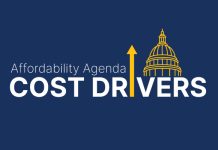In this episode of The Workplace podcast, CalChamber Executive Vice President and General Counsel Erika Frank and employment law expert Jennifer Shaw discuss AB 1867, which establishes COVID-19-related supplemental paid sick leave for some employees and took effect on September 9, 2020.
Urgency Bill
While new laws typically take effect on January 1 of the new year, AB 1867 was passed as “urgency” legislation and took effect on September 9, Shaw tells listeners.
The law, Frank explains, was intended to close the gap between the federal Families First Coronavirus Response Act (FFCRA) leave provisions and an executive order signed in April by California Governor Gavin Newsom that granted supplemental sick leave benefits to food sector workers.
The law provides up to 80 hours of paid sick leave to food sector workers, and some emergency responders and health care providers and businesses that employ 500 or more employees nationally. The FFCRA establishes a supplemental paid sick leave requirement for those industries as well, but the requirement is imposed on employers with fewer than 500 employees, Shaw says.
With AB 1867, now all employees in these sectors will be eligible for COVID-19-related supplemental paid sick leave, regardless of employer size, Frank tells listeners.
If an employer already provides a supplemental benefit, they will not be required to provide an additional 80 hours of leave under AB 1867, Shaw says.
Although the FFCRA provides employees with time off in case of school closures, AB 1867 does not allow the supplemental sick leave to be used for school closure purposes, Frank explains.
AB 1867 is scheduled to expire on December 31, 2020, which is also when the FFCRA is set to sunset. However, Shaw points out that the sunset date largely depends on the state of the COVID-19 pandemic and the possibility of a vaccine. Both AB 1867 and the FFCRA can be extended past December 31 if legislators choose to do so.
Consult with Legal Counsel
Shaw recommends that employers who think they fall under the requirements of AB 1867 read the law carefully and consult with their legal counsel. Although AB 1867 is focused narrowly on food sector and some health care employees, the law contains many ambiguities.
It’s also important that employers designate someone within their workplace to handle COVID-19-related leaves, she says.
“All of these laws that we talk about on the podcast, all of the obligations that employers have—they are not static, they change. So you have got to have folks in your organization who are responsible for managing these changes and staying on top of what’s going on. It’s a lot,” Shaw tells listeners.
Shaw also cautions employers to be careful about where they obtain their labor law information because she has seen misleading and inaccurate information circulated.
The CalChamber offers a variety of resources to help employers comply with new laws. Check out the variety of webinars, posters, white papers and forms CalChamber has available by starting a free 15-day trial. Visit HRCalifornia.com for more information.


